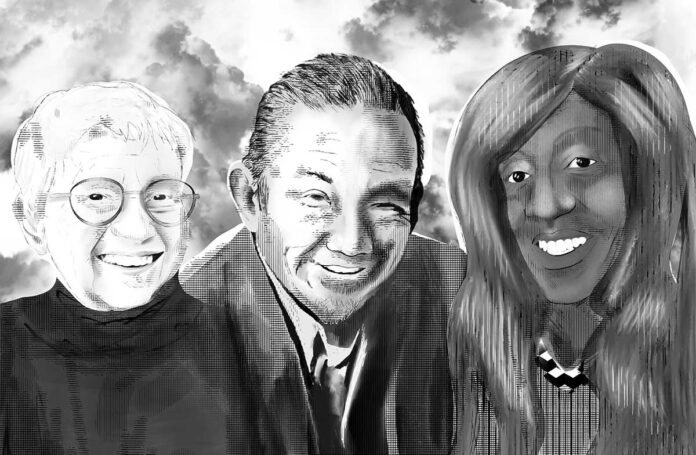
Every year in October, we bring you stories from those who changed the trajectory of our community. From groups like Gay Liberation Front to people like Pauli Murray, it’s important to remember where we came from and to use the lessons of that history to affect positive change. We hope, as always, that this year you’ll find some wisdom in the past.
This week we’re running a feature on Urvashi Vaid, who devised an ingenious plan to get front page local media coverage of the HIV/AIDS crisis. During ACT UP’s Seize The FDA mass action in 1988, Vaid made sure that local activists from every major city were present and easy for reporters to find. The activists were given signs with their cities and a megaphone was used to relay their location to journalists. Vaid knew, wisely, that local angles are essential to local publications. Such a strategy was invaluable during a time when many media did not even want to cover HIV/AIDS.
Next week, we’ll present you a story about Dave Kopay, the first former NFL player to come out. Kopay played for various teams in the 1960s and 70s before retiring in 1972. In 1975, after seeing other former NFL players speak anonymously about their sexual orientation in an article in “The Washington Star,” Kopay spoke on the record about himself and how homophobia had stymied his attempts to get a coaching job.
Also this month, we’ll explore the impact of DykeTactics!, a lesbian-feminist group in the 1970s who protested Philadelphia City Council’s inaction on an LGBT nondiscrimination bill. We’ll have features on Bell Hooks, an author and activist who published over 40 books dealing with issues including race, gender, class, history, art, and sexuality. We’ll look at how the San Francisco Public Library is digitizing its LGBTQ items, including writings and photographs dating all the way back to Harry Hay, who founded the Mattachine Society in 1950. And we’ll have several other features showcasing our history from around the country and around the world.
Every year, it’s worth noting that history often repeats itself. We’re seeing it in great, harrowing detail as MAGA Republicans, in their mindless following of Donald Trump, seem to channel much of what made 1930s Germany so dangerous. Remember those photos of the Nazi’s burning books? We have modern book burnings — in the form of bans — happening throughout this country, all because of a nonsensical fear that children turn gay at the mere sight of the word.
Sadly, that fear is expanding beyond books. We’re seeing laws passed against LGBT people that are so backwards that one might assume they were taken directly from the 1920s. In many places in the country, it might as well be 1920, since you can be thrown out of your house and fired from your job because of your sexual orientation or gender identity. And some rights we thought we’d won for good, like marriage and adoption, are once again being galvanized as conservative talking points, thanks in part to a religiously tilted Supreme Court.
We also see history repeating itself within our own community. The major question, about how the movement for equality should move forward, is still being debated. Racism and transphobia within the LGBTQ is still an issue. Pride organizations around the world are grappling with the choice between celebration versus political action. And we’re still figuring out how to use our power as a community, politically, economically, and socially.
This month, as we prepare for an election that will determine the course of LGBTQ rights, try to learn as much as you can from where we’ve been, and work towards the future you want for yourself, your family, and all those you care about.